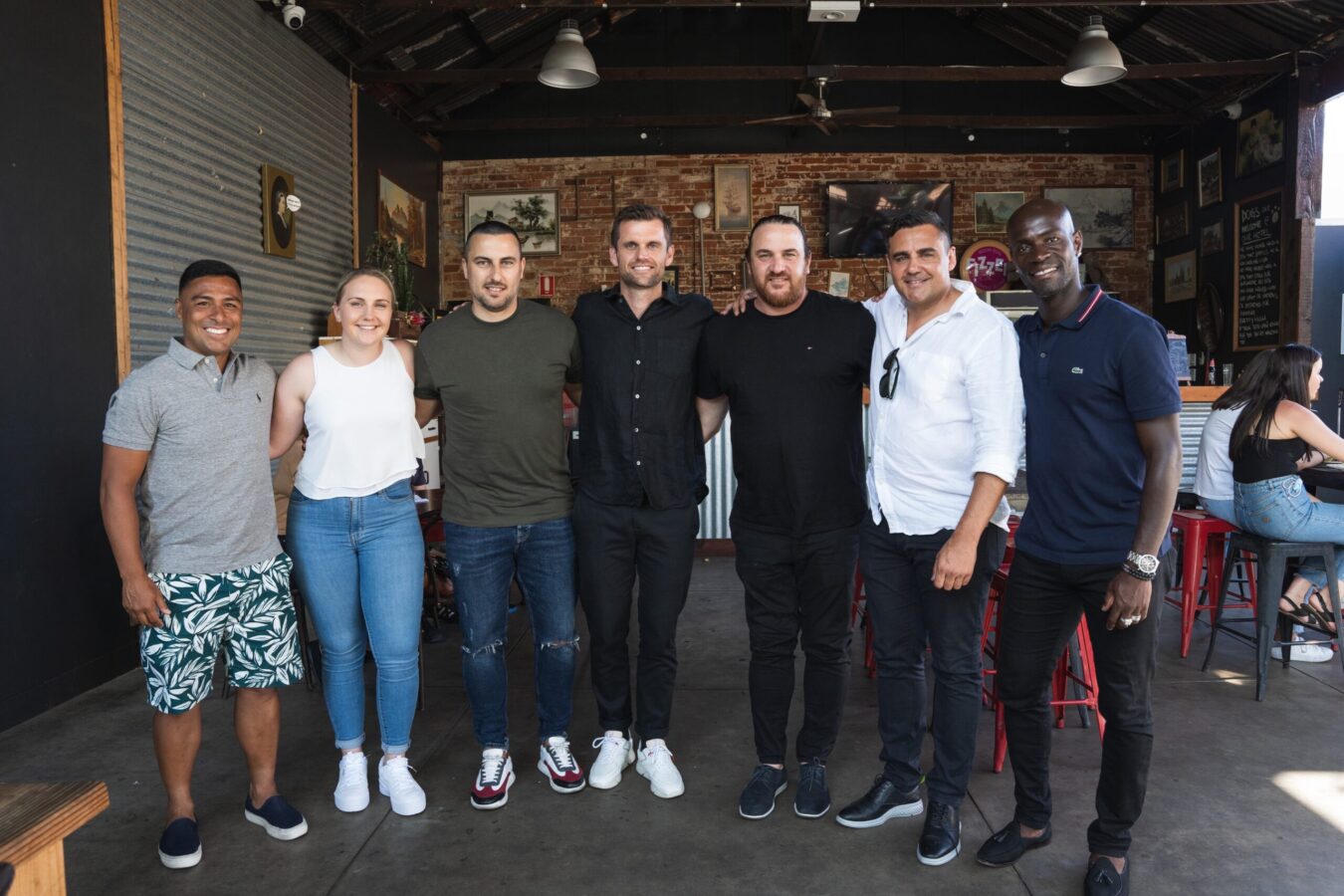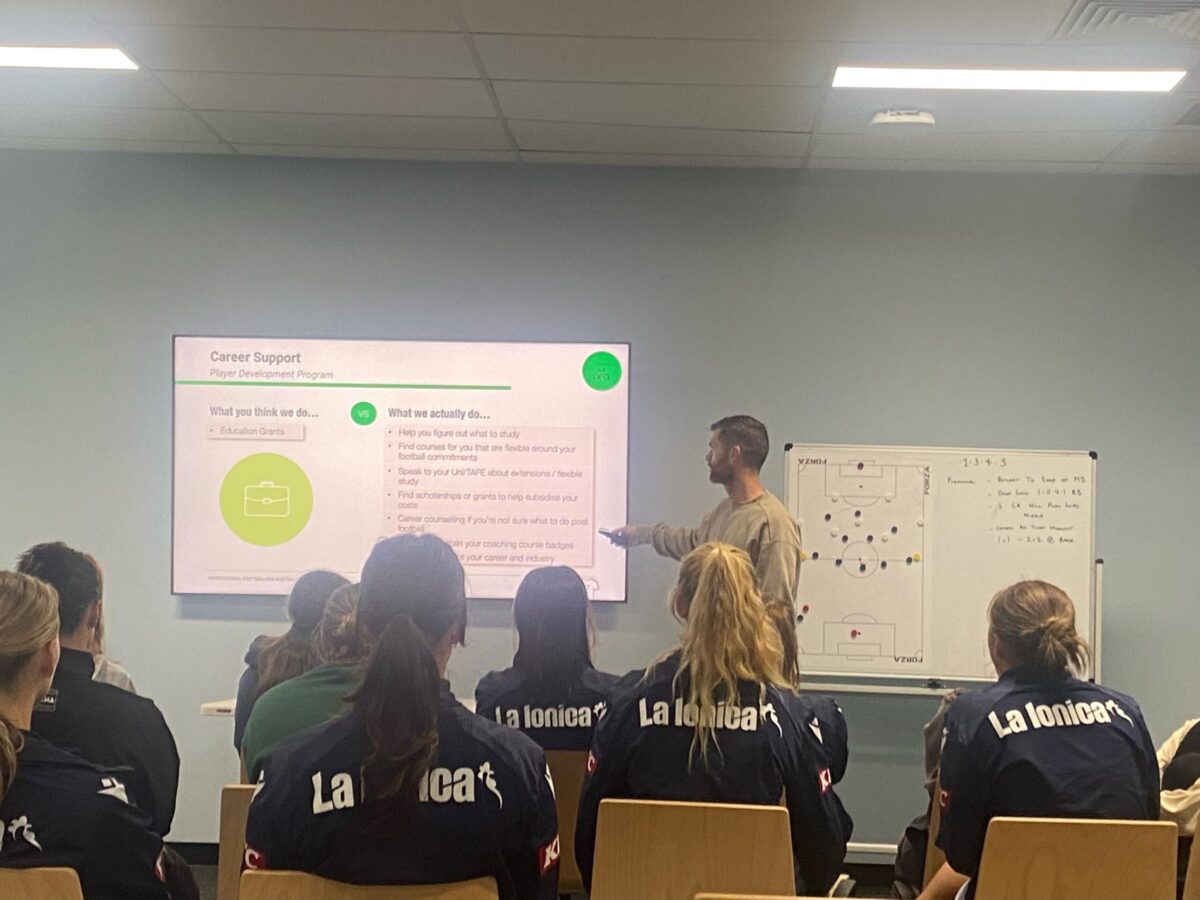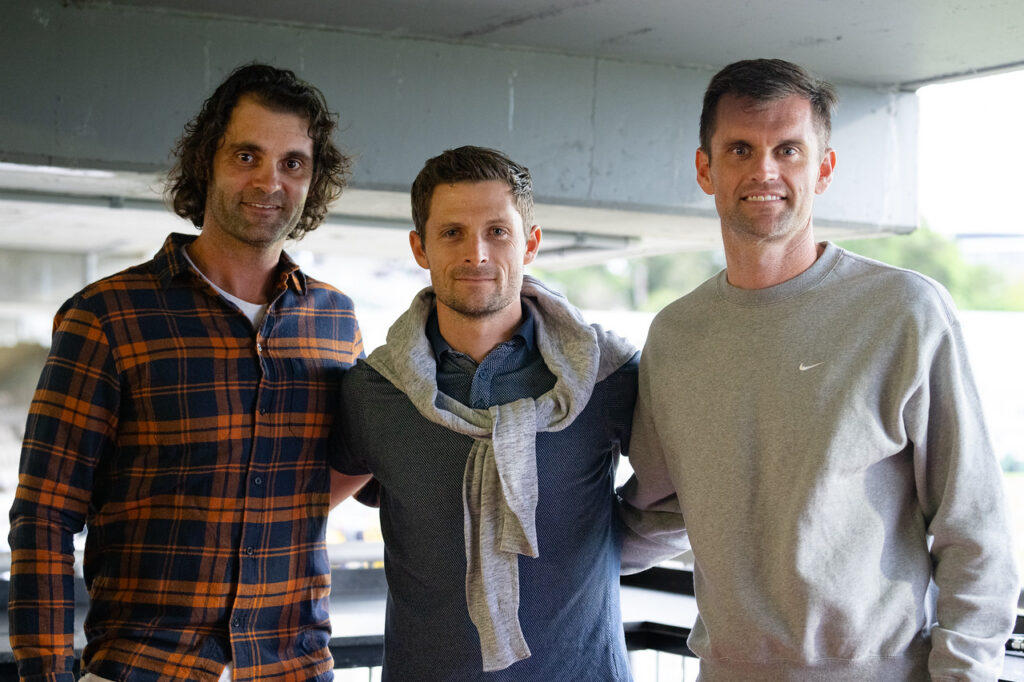Player Development Managers have an important role to play in the Australian footballing landscape. Professional sport is a place filled with extreme rewards as well as challenges that continue through an athlete’s short playing career into their transition into life after football.
Player Development Managers assist players in a world that can become isolating for footballers and support them so that they can become the best versions of themselves on and off the pitch. Cameron Watson is someone who knows the challenges of professional football, having carved out a career playing overseas and domestically and also representing Australia at youth level.
We chat with Cameron about his role as a PDM and how he goes about supporting the players of the A-Leagues’ Melbourne-based clubs.
What does your job as a Player Development Manager entail?
The purpose of the PDM is to promote the personal and professional development of players by empowering them to take ownership of their own development as professional footballers and beyond. This requires PDMs to work collectively with clubs and players. The three key areas of the PDM space are wellbeing, career, and retirement.

Watson (C) with former Adelaide United players at a PFA Past Players Program event.
How do you directly support players?
We offer our services and resources to those who are members through the Player Development Program. As mentioned, the three key areas are wellbeing, career, and retirement.
Wellbeing is about helping to develop well-rounded people, help them create their own identity, and refer members to expert support services. In terms of career support, we provide various workshops to help players develop life skills, assist late-career players with transition plans, and provide assistance to gain educational qualifications.
Finally with retirement we assist players transitioning out of the game and into their next career. This includes career counselling, CV support, networking and job opportunities.

Watson delivering a pre-season workshop on the PFA’s player support services to Melbourne Victory’s A-League Women’s team
How does this differ from what an A-League club might offer its players?
We look to develop our members outside of the football ‘bubble’. Clubs have their roles and objectives that revolve around being successful on the field. The PDM’s goal is to help our members develop outside of the football field.
Having an identity away from football can be pivotal when it comes to transitioning away from the game. More so, continuous research shows that personal and professional development while playing has a positive outcome on and off the field.
Related: Watson joins PFA’s Player Development team
Do you have to change your approach depending on the player? Do some players require more help than others?
Everyone is different, plain and simple. In football, we are dealing with players at the age of 16 who are finishing their studies and graduate from year 12, to players that are 35 who have played around the world at the highest level. We also deal with many different cultural backgrounds, values, and beliefs – all of these will change the approach, but the goal will remain the same.
Men’s and women’s football are also very different spaces – a lot of women still have a job outside of football. Therefore, most of them won’t need as much career guidance but need help in other areas in creating balance with their football goals.
What are your favourite aspects of the role?
Knowing that as an organisation we have the player’s best interest at heart and everything we do, is trying to improve the game for the next generation.
Ultimately, being around football 24/7 is what I love so that is the biggest thing!
What areas are you finding players require the most assistance with?
Education and mental health are the two biggest areas. From an educational standpoint, a lot more players are now studying to help them prepare for life after football.
More so, players are prepared to talk to experts about their game, performance, mental health, and so forth, to better their everyday lives and their role in the sport.
How does your experience as a footballer assist in this role?
Knowing the environment and having lived it for 15 years definitely helps. Then it is my job to be credible and knowledgeable, so I can assist them to the standards they expect, and what we expect as a world-class organisation.

Watson (R) with former Sydney FC defender and fellow Player Development Manager Jacob Timpano (L), and former A-League player Shannon Cole (C)
How did you cope with the transition into life after football? Has this experience helped you in your role?
I can definitely say I transitioned quite well out of the game. That’s not to say it wasn’t hard at times, but I managed to go straight into a job with good people while I finished my Business Degree. Again, I have lived what every player will go through – retirement. This helps as I can relate to a degree of what many players may experience when finishing up.
How far has the industry come with player care? Can you speak to what you experienced as a player and what you see now?
The PFA has continued to grow over time. When I was playing, PDMs weren’t full-time and you would probably expect to see them at the club once every two to three weeks.
Now, PDMs attend each club on a weekly basis and conduct regular assessments or interviews with each and every player throughout the season.
The resources and services continue to grow that support our current and past players.
Our data shows that a vast majority of our members are using those services which is a credit to them as individuals and those at the PFA. We won’t stop in our hard work to maintain world-class standards for our players.







